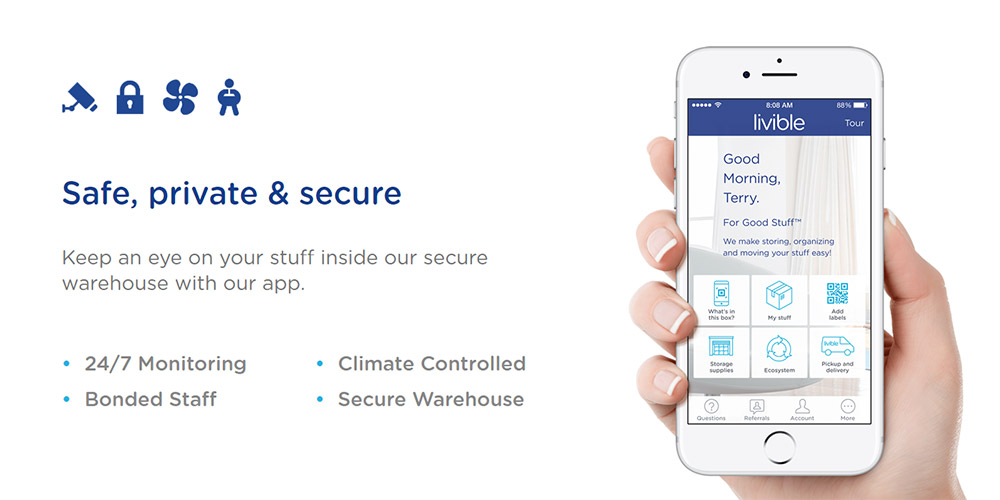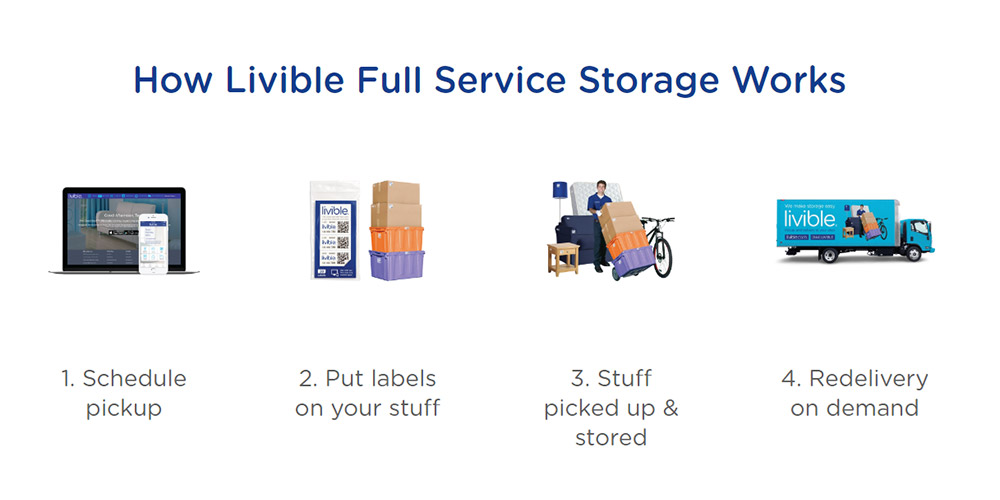* – This article has been archived and is no longer updated by our editorial team –
Livible is a full service or on demand storage company and it works similarly to Uber and Airbnb in a way that it makes customers’ lives easier while offering more convenient and less expensive storage options. The company recently expanded to Boston by acquiring Fetch Storage. Livible leverages Terry Drayton’s experience in raising successful and fundable startups and consumer brands to create a logistics network and provide a better customer experience using the newest technologies.
Below is our interview with Terry Drayton, Founder & CEO of Livible:

Q: How was Livible able to beat 11 other suitors for Fetch Storage?
A: Experience. I’ve bought over 20 companies in my career and the key is always to find out what the seller wants and, if you can, give it to them. Price matters but it’s not the only consideration. Livible wasn’t the highest bidder for Fetch Storage. From meeting the owners it was clear they believed in full service storage and really didn’t want to sell but knew they needed to. So I gave them a no-risk way to continue to participate and that’s what did it.
 Recommended: Verisys – Dedicated To Preventing Fraud, Waste And Abuse For Leading Organizations
Recommended: Verisys – Dedicated To Preventing Fraud, Waste And Abuse For Leading Organizations
Q: One of your full service storage competitors has raised $65M and another $100 million. Livible has only raised $5M so how are you able to compete against them?
A: I don’t want to use the same answer but it’s experience again. I’ve been a unicorn, raising hundreds of millions for my start-up, having a huge burn then painfully watching it die when it became impossible to raise funds at any price. I won’t ever do that again so Livible has a very capital efficient model that needs a fraction of the capital our competitors need. We’re also logistics experts and know how to build the technology that’s needed to support our business. That includes some fundamental patents. We’re way ahead of our competitors as we knew exactly what was needed and how to build it. Finally we know how to expand to other cities and countries as we’ve done it before multiple times. We architected our systems to easily add new markets. So for us expanding to Boston was trivially easy, something we completed the weekend after closing. Disrupting a $30B industry like self-storage will take years so longevity and staying power matter. So keep the burn low, expand profitably. We’ve already seen an early high-flying competitor, Boxbee, burn $15M and crash so if that happens to another competitor we’ll be ready and able to support their customers.
Q: Traditional self-storage sounds and looks a lot like video rental companies like Blockbuster did before Netflix came along and wiped them out. Do you think that’s a good analogy for full service storage?
A: Yes, and that’s exactly what a senior executive of a leading self-storage company said to us is his biggest fear. Livible is a classic disruptive offering: easier, more convenient and less expensive. Consumers are smart so full service storage will win as it’s a fundamentally better customer experience. Blockbuster was riding high and used real estate as their competitive advantage – stores in all the right locations. Great for blocking other, traditional video rental stores but then Netflix and on-demand services bypassed that and went right to the customers home. The could have reacted early on but ignored, derided, downplayed the players but they really couldn’t compete and declined slowly as it was game over. That’s exactly like the self-storage companies who have 60K facilities on every street corner now and are super profitable. Full service comes along and we go right to the customers door so they will eventually be toast. We talked to many self-storage incumbents and they are arrogant and dismissive, just like Blockbuster was. Look at Airbnb vs hotels or Uber vs taxis. Easier, more convenient and less expensive is a winning option for consumers. Then throw in the massive changes with driverless cars where fewer and fewer people drive or own them.
 Recommended: AcctTwo Provides Businesses With Real-Time Insights They Need To Make Accurate Business Decisions
Recommended: AcctTwo Provides Businesses With Real-Time Insights They Need To Make Accurate Business Decisions
Q: Where will you expand to next?
A: Baring another acquisition, we’ll be heading south on both coasts. On the west we’ll go to the San Francisco Bay Area next or possibly LA. On the east we’ll go to the NYC area or possibly DC.

